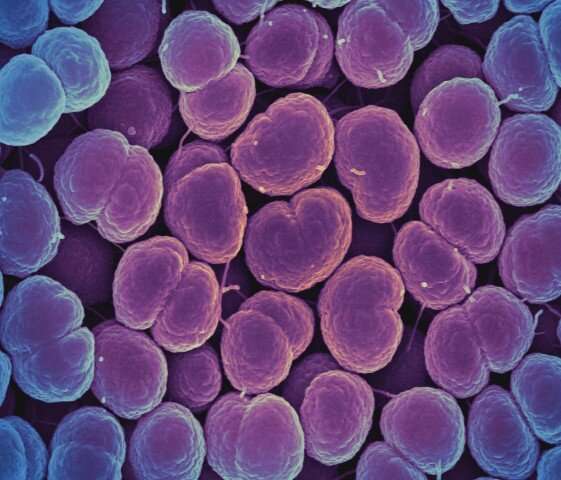NIAID officials call for innovative research on sexually transmitted infections

Sexually transmitted infections, or STIs, pose a significant public health challenge. Globally, more than one million new STI cases are diagnosed each day. In a new article in The Journal of Infectious Diseases, experts from the National Institute of Allergy and Infectious Diseases (NIAID), part of the National Institutes of Health, suggest that the biomedical research community must refocus its commitment to STI research to surmount this growing global health crisis.
The perspective piece was written by NIAID Director Anthony S. Fauci, M.D., Robert W. Eisinger, Ph.D., special assistant for scientific projects in NIAID’s Immediate Office of the Director, and Emily Erbelding, M.D., director of NIAID’s Division of Microbiology and Infectious Diseases. The authors note that a variety of STIs are contributing to the public health crisis as cases of gonorrhea, syphilis, and chlamydia are all on the rise. Left untreated, many STIs can cause serious complications. Congenital syphilis can cause stillbirths and health complications in newborns, and gonorrhea and chlamydia can contribute to life-threatening ectopic pregnancies (when a fertilized egg grows outside the uterus). Gonorrhea and syphilis, which are increasing among men who have sex with men and bisexual men, also are associated with an increased risk for HIV transmission and acquisition. Moreover, increasing antimicrobial resistance will make STIs only more difficult to treat, as many existing drugs will become less effective against the microbes that cause gonorrhea and other STIs.
Unfortunately, the authors note, STI research efforts have not adequately addressed the ongoing spread of these diseases. To address this public health threat, biomedical research programs need to be refocused on developing innovative diagnostics, therapeutics, and vaccines for STIs. Healthcare providers need access to faster, low-cost diagnostics to identify both active and asymptomatic STIs. The STI vaccine pipeline also needs to produce effective new candidate vaccines for syphilis, gonorrhea, and chlamydia. As for STI therapeutics, the authors note that research efforts must focus on drug-drug interactions, toxicities and side effects, while keeping ahead of spreading antimicrobial resistance.
Source: Read Full Article
